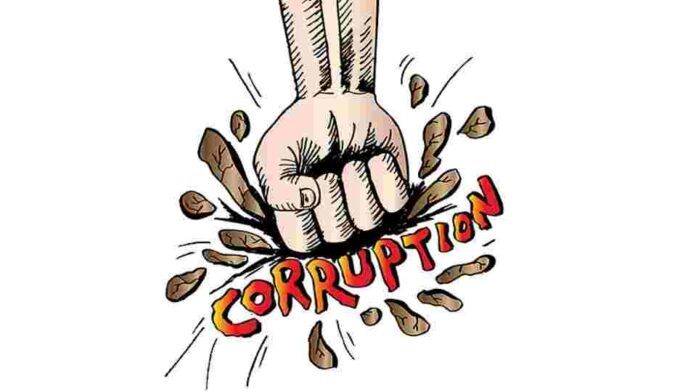The Ministry of Justice has drawn up a new controversial anti-corruption bill and it is expected to present in parliament that would see the creation of an independent commission that is empowered to carry out arrests without a warrant or a magisterial order, for officials who are suspected to have carried out an offence under the proposed anti-corruption act.
The Anti-corruption Bill, evolved in conformity with the UN Convention on Corruption has been sent to the Attorney General for clearance before presentation in Parliament for enactment, a Justice Minister Wijeyadasa Rajapakshe said.
The Bill, if enacted by the House, will provide for the establishment of a fully fledged bribery commission with powers and autonomy to deal with corruption. It will have full time serving commissioners to carry out investigations. Also, the commission will have authority to examine declarations of assets and liabilities.
The International Monetary Fund (IMF) has also envisaged the need to enact such a law to curb corruption for the implementation of its programme with Sri Lanka.
The UN Convention covers five main areas: preventive measures, criminalisation and law enforcement, international cooperation, asset recovery, and technical assistance and information exchange.
The Convention covers many different forms of corruption, such as bribery, trading in influence, abuse of functions, and various acts of corruption in the private sector
The Minister of Justice, Wijeyadasa Rajapaksa said that the bill was drafted based upon the UN convention against corruption, which has been ratified by Sri Lanka in 2004.
The Minister said that the existing bribery and corruption commission does not have the power that is proposed in the current bill, while it is important to make the commission independent without any political party or any affiliations.
In addition, the Minister said that it has been proposed to dissolve the existing laws with regard to assets and liabilities, which will be included within the proposed bill.
Moreover, whistleblower rights will also be protected, the Minister said. According to the bill, any authorized officer of the Commission may without an order from a Magistrate and without a warrant arrest any person suspected of committing an offence under the provisions of this Act.
The Minister emphasized that this is NOT a quasi-judicial power, as the Police too is able to arrest people without a warrant.
Section (58)1 of the proposed bill highlights that “an authorised officer of the Commission may apply in writing to the High Court for a warrant authorizing the covert monitoring of any conduct and recording of any communication if such officer has reasonable grounds to suspect or believe that a person has committed, is committing or is about to commit an offence under this Act,”.
The Minister went onto say that these provisions are common to many countries, and it is to ensure that the public sector functions without any corruption or illegal activities.
The bill has been directed to the Attorney General to confirm its constitutionality, after which it will be gazetted and will be presented before the Parliament, the Minister added.
